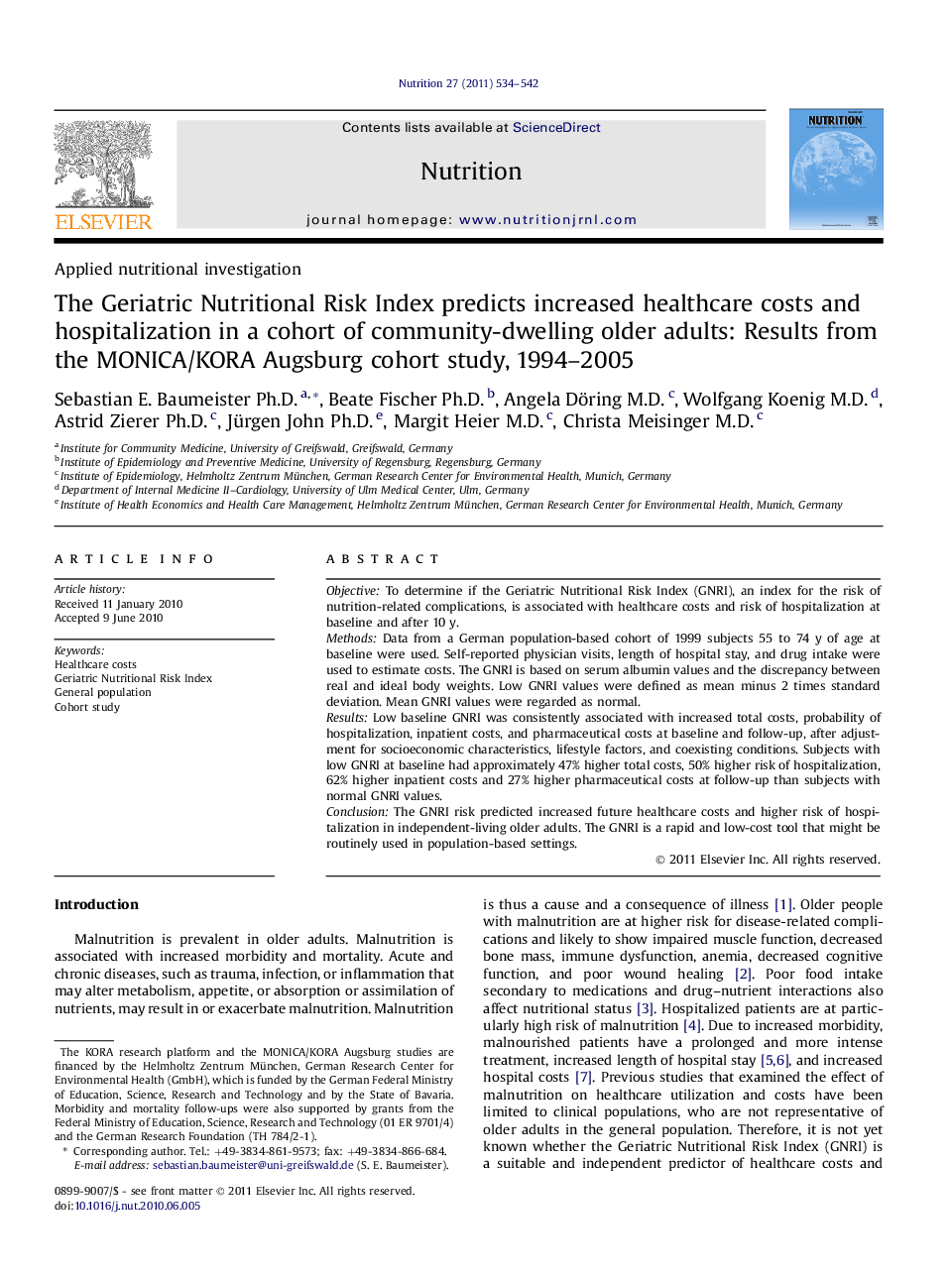| Article ID | Journal | Published Year | Pages | File Type |
|---|---|---|---|---|
| 3276735 | Nutrition | 2011 | 9 Pages |
ObjectiveTo determine if the Geriatric Nutritional Risk Index (GNRI), an index for the risk of nutrition-related complications, is associated with healthcare costs and risk of hospitalization at baseline and after 10 y.MethodsData from a German population-based cohort of 1999 subjects 55 to 74 y of age at baseline were used. Self-reported physician visits, length of hospital stay, and drug intake were used to estimate costs. The GNRI is based on serum albumin values and the discrepancy between real and ideal body weights. Low GNRI values were defined as mean minus 2 times standard deviation. Mean GNRI values were regarded as normal.ResultsLow baseline GNRI was consistently associated with increased total costs, probability of hospitalization, inpatient costs, and pharmaceutical costs at baseline and follow-up, after adjustment for socioeconomic characteristics, lifestyle factors, and coexisting conditions. Subjects with low GNRI at baseline had approximately 47% higher total costs, 50% higher risk of hospitalization, 62% higher inpatient costs and 27% higher pharmaceutical costs at follow-up than subjects with normal GNRI values.ConclusionThe GNRI risk predicted increased future healthcare costs and higher risk of hospitalization in independent-living older adults. The GNRI is a rapid and low-cost tool that might be routinely used in population-based settings.
